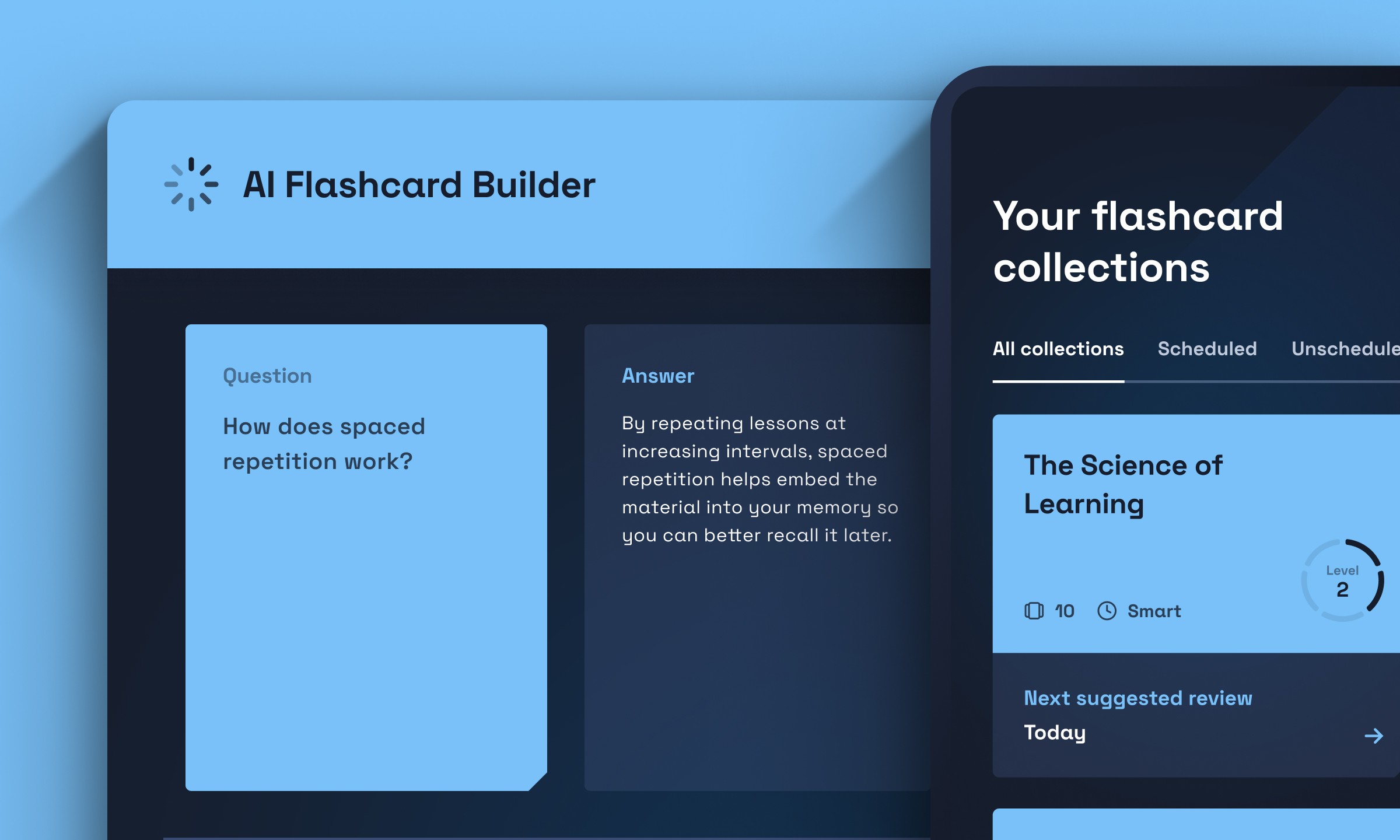Product News
December 1, 2023
Luna: Revision Schedules and AI Flashcards
What’s Luna, and why did we make it?
It’s not easy to know the best way to revise. You’ll probably have been recommended countless different techniques, by countless different friends, who all swear by their own method. That’s great, but ultimately they’re not you: the most effective way to revise will vary from person to person, as we all learn differently. That’s something people say a lot, but beyond being a buzz-term it has practical implications. The time of day we learn best will vary, how frequently we need to revise will vary, and what we need to focus on will vary too. By no means is that a comprehensive list of differentials.
There’s a lot of things to consider that mean a ‘one-fits-all’ technique simply doesn’t exist. However, there are two broad principles that are widely accepted to improve how effectively anyone can revise; active recall and spaced repetition.
Active recall
Active recall means engaging your brain to recall information. This could be answering questions on a flashcard, creating mnemonics, or studying with a group.
Doing these things means your brain is recalling information rather than just recognising it. Passive revision techniques, like rereading or rewriting notes, don’t help with your brain’s ability to summon information when the information isn’t there already. Unfortunately, in most tests or exams you‘ll be reliant on recalling information that you have learned, so practising active recall when revising will help with this.
Spaced repetition
Spaced repetition is a learning method which involves reviewing information at certain intervals to improve retention. The theory behind this is that by looking over information at regular intervals, our brains are better able to encode it into long-term memory.
Another way to think about spaced repetition is to imagine you have a list of 50 things that you need to remember. Compare how much you are likely to remember if you spend one day learning the list for a few hours, compared to spending 10 days learning for about 15 minutes each day.
Some of us maybe able to remember quite a lot of the things on the list, but only for a short time - chances are we wouldn’t be able to recall many if tested a month later. Most of us though would be able to remember the list a month later if we’d spend 15 minutes learning it over 10 days, especially if those 10 days were also spread out over the month, rather than just all at the beginning.
Universally accepted science. Specific to you.
Here’s where Luna comes in. It helps you create flashcards so that you can revise using active recall. It can then create a schedule to space out how often you spend learning the flashcards over a period of time.
And then it goes a bit further.
Say you can remember things pretty quickly - your schedule could probably be less frequent (i.e. have bigger gaps between each session). Alternatively, if you struggle to remember new information, it makes sense that your schedule helps you by only have short gas between each session. Well, Luna has got that covered.
It’s likely there are also some cards that you remember really easily and some that you keep forgetting the answer to. You’d want to review the cards that you struggle with more frequently than the cards you find easier, right? Luna can sort that out too.
But maybe you just want to spend every day learning all your cards until you have to sit your test or exam. No problem, Luna can let you create whatever schedule you like - remember, there is no one-size-fits-all approach so everyone can tailor how Luna can help them the best.
Get Luna
Institution licences
Get in touch to discuss purchasing options tailored to the size and need of your organisation.
Individual licences
Luna will be available to purchase for individuals in summer 2023.
Disabled Students’ Allowance (DSA)
Luna has been approved by SFE for recommendation through the Disabled Students’ Allowance (DSA) funding, and will be available for recommendation soon.



